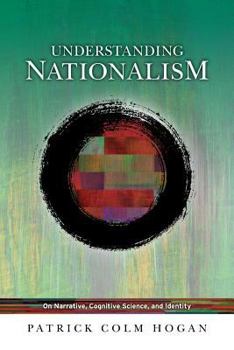Understanding Nationalism: On Narrative, Cognitive Science, and Identity
Select Format
Select Condition 
Book Overview
From the rise of Nazism to the conflict in Kashmir in 2008, nationalism has been one of the most potent forces in modern history. Yet the motivational power of nationalism is still not well understood. In Understanding Nationalism: On Narrative, Cognitive Science, and Identity, Patrick Colm Hogan begins with empirical research on the cognitive psychology of group relations to isolate varieties of identification, arguing that other treatments of nationalism confuse distinct types of identity formation. Synthesizing different strands of this research, Hogan articulates a motivational groundwork for nationalist thought and action. Understanding Nationalism goes on to elaborate a cognitive poetics of national imagination, most importantly, narrative structure. Hogan focuses particularly on three complex narrative prototypes that are prominent in human thought and action cross-culturally and trans-historically. He argues that our ideas and feelings about what nations are and what they should be are fundamentally organized and oriented by these prototypes. He develops this hypothesis through detailed analyses of national writings from Whitman to George W. Bush, from Hitler to Gandhi. Hogan's book alters and expands our comprehension of nationalism generally-its cognitive structures, its emotional operations. It deepens our understanding of the particular, important works he analyzes. Finally, it extends our conception of the cognitive scope and political consequence of narrative.
Format:Paperback
Language:English
ISBN:0814255124
ISBN13:9780814255124
Release Date:November 2018
Publisher:Ohio State University Press
Length:408 Pages
Weight:1.29 lbs.
Dimensions:0.9" x 6.0" x 9.0"
Customer Reviews
0 rating





